💡 Note: Running a business with a heavy email load? A personal mail server offers enhanced control over security, privacy, and reliability. Our high performance VPS provides a robust platform for your mail server needs, ensuring secure, private, and uninterrupted email communication.
Many of us might have believed that the rise of instant messaging would phase out email from business communications. However, email has kept its place as an important factor in professional communications. So, as a business owner, you have to decide how you want to benefit from this determining factor. Do you want to use a public email provider or you want to host your own mail server?
Opting to create my own email server for free can save you a lot of money and help you take better control on your business’s communication channels. A private mail server offers lots of advantages in terms of security, customization, and control. With a private mail server you get a level of security that you can never dream of on a public mail server. This way, you can better protect your sensitive information. You can get lots of other advantages as well if you choose to create a mail server free which we’ll cover in this blog. So, if you’re thinking to yourself how to create my own email server for free?, this blog is for you.
Also Read: Best mail servers for Linux
What is a mail server?
A mail server works like a post office that manages the sent and received emails across a network. Mail servers receive emails from clients and transfer them into their recipients and make sure that every message finds its way to the right inbox. So, a mail server hosting system should be able to manage vast volumes of email traffic efficiently. Whether it’s for personal use or managing the communications of a large corporation, a mail server should make sure that your messages are transferred securely and reliably. If you’re interested in setting up email server configurations on your own, the concept of a mail server free of cost might be particularly appealing. This approach allows for greater control over your email environment and offers a personalized space for your business communications.
Hosting your own mail server also allows you to customize your email infrastructure to suit your specific needs. From implementing advanced security measures to tailoring storage solutions, a VPS mail server offers a flexible platform for businesses that want to optimize their email systems.
 Linux Hosting Simplified
Linux Hosting Simplified
Want a better way to host your websites and web apps? Developing something new? Simply don’t like Windows? That’s why we have Linux VPS.
Get your Linux VPSHow to simply create your own mail server?
Creating your own mail server can seem daunting at first, but with the right approach, it’s a straightforward process that offers significant benefits for email server hosting. Bur before starting the process you should have a good understanding of mail protocols. In general, there are multiple methods to create your own mail server on your VPS, but we are going to cover the simplest way by using HMmailserver which is a popular, free, and open-source mail servers for the Windows operating system.
Step 1: Download and Install
Download and click run for hmailserver installer.
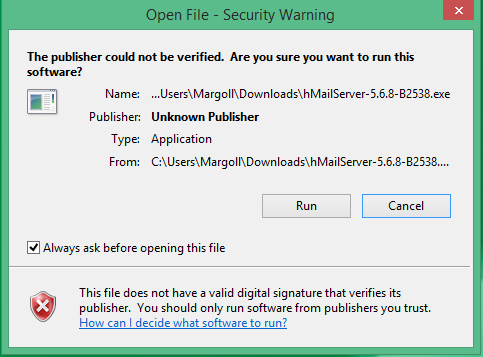
Click Next to continue.
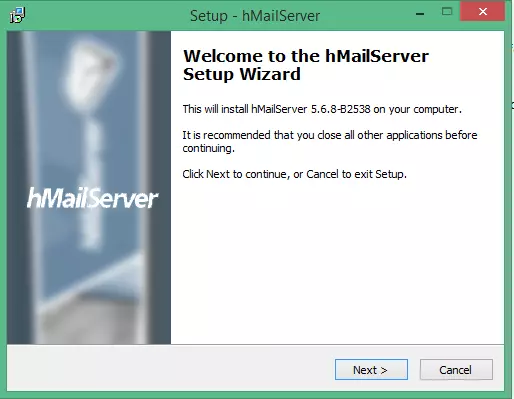
Choose the first option to accept the license agreement.
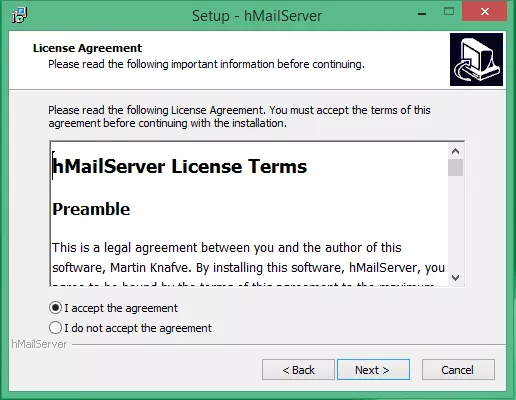
Choose a destination for your hmailserver installation.
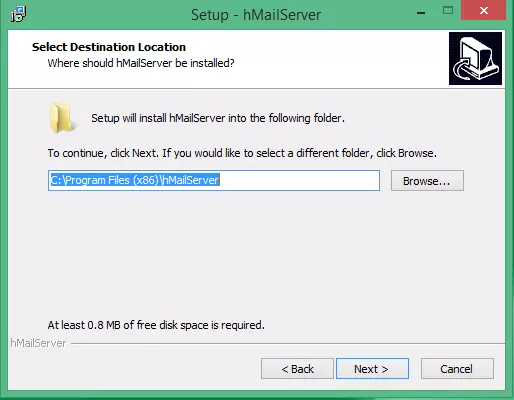
Check the Server checkbox to make your local computer into the server or Administrative tools to manage the server remotely.
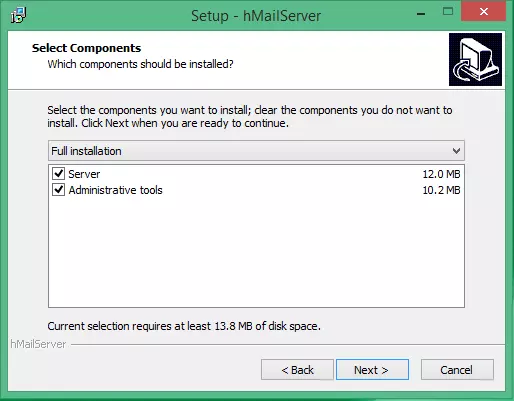
Select Next, then specify your database type.
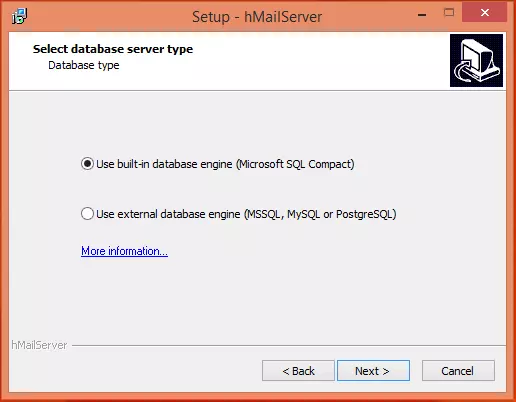
Click on Browse to select the folder location for your program’s shortcuts. Click Next.
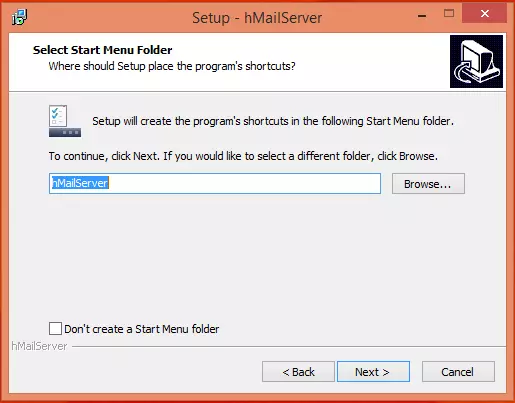
Enter the primary password to manage your hMailServer configuration (keep it somewhere for next use).
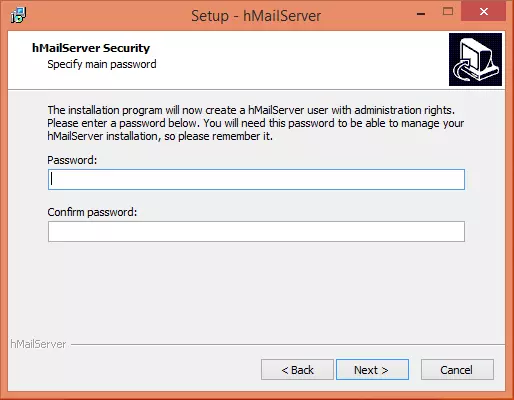
Click Next and then click Install to load hMailServer on your VPS.
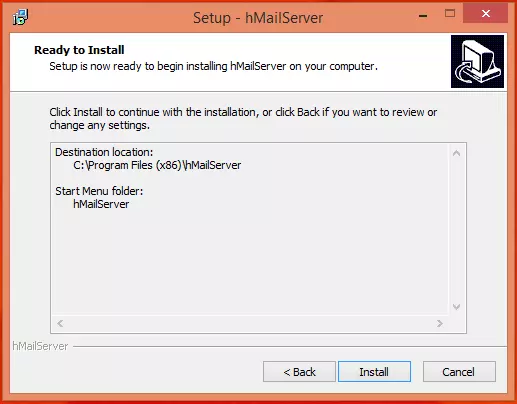
When it is finished, check to enable the Run hMailServer Administrator box and click Finish.
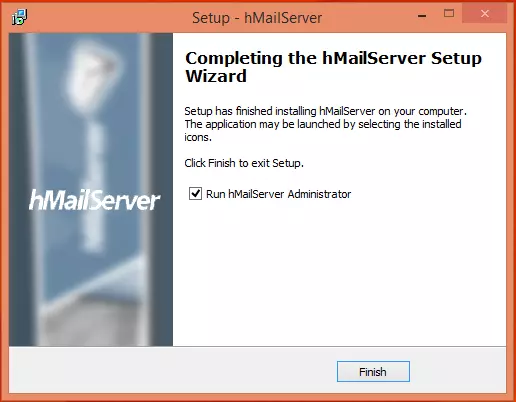
Step 2: Start hmailServer and Connect
The hMailServer Admin window appears now click Connect.
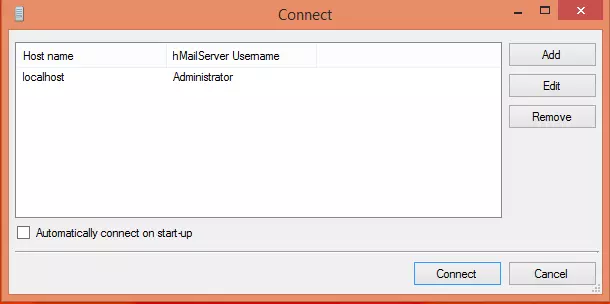
Type the password you have already chosen in the installation process.
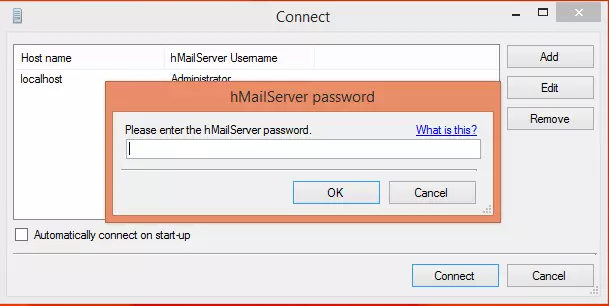
Step 3: Add Domain
Now, you can run your SMTP server by clicking on Add domain.
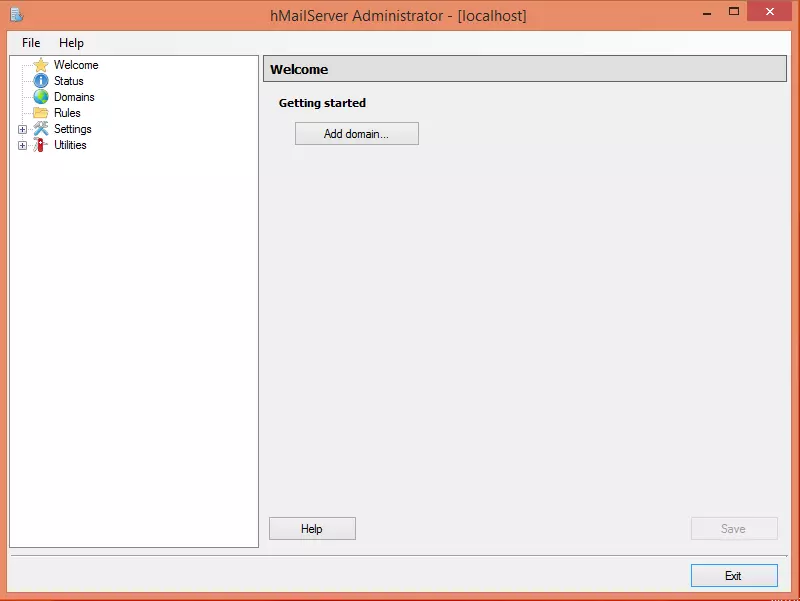
Under the General tab, put in your domain name (DNS) and click Save.
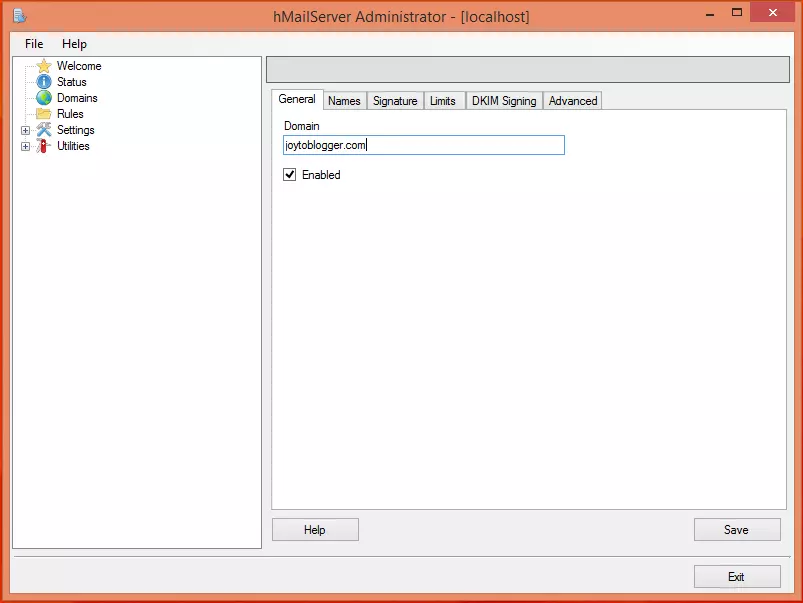
Step 4: Add Account
On the left side, select Domains, then Accounts.
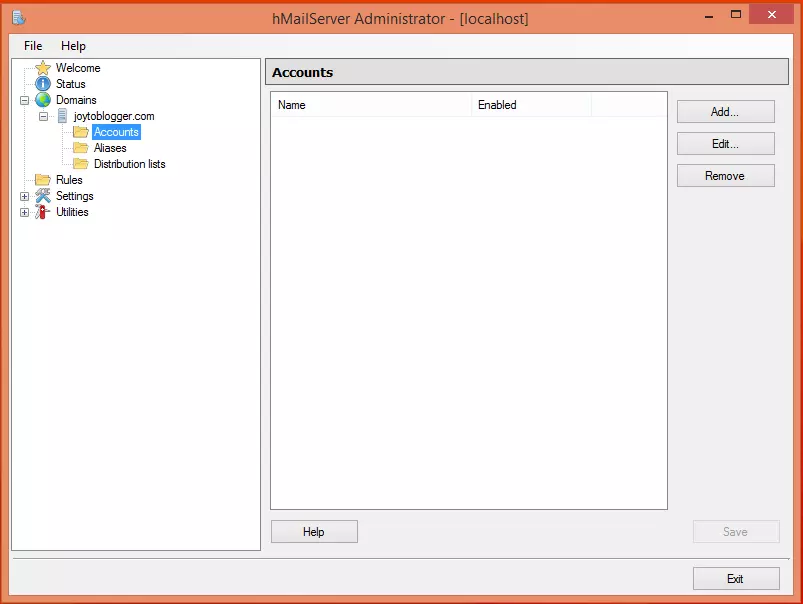
Click ADD to enter a name in the address field and a password, then click Save.
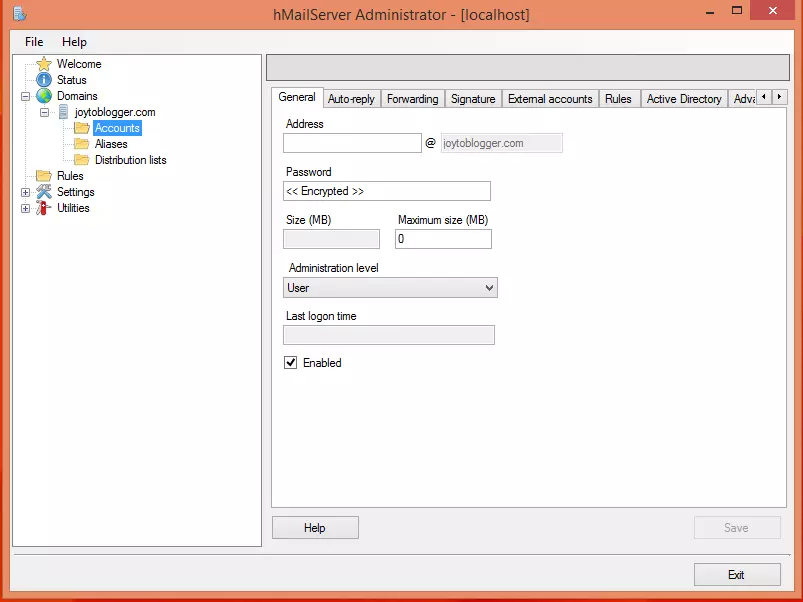
Step 5: Config Protocols
Now go to the Settings subfolder, choose the Protocols and select SMTP (uncheck the POP3 and IMAP boxes).
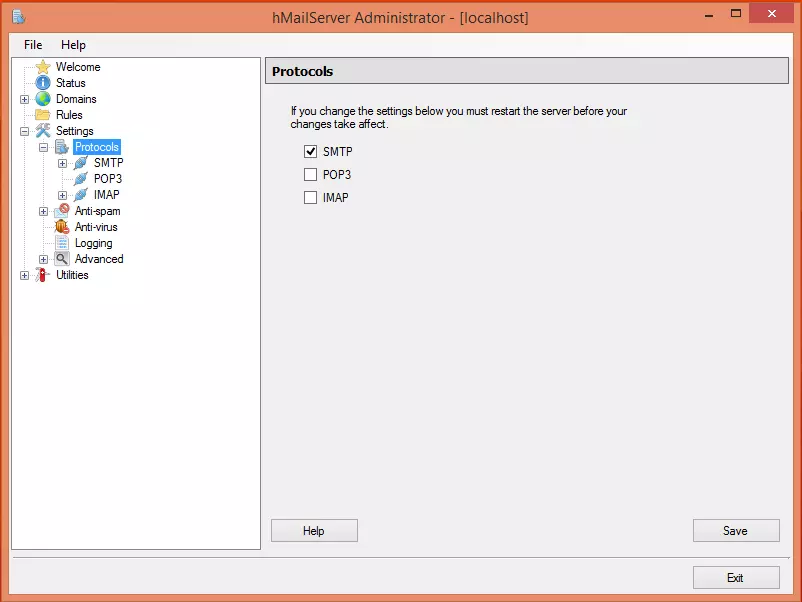
Step 6: Set Default Domain
Click Advanced and type “localhost” in the Default domain field. Click Save.
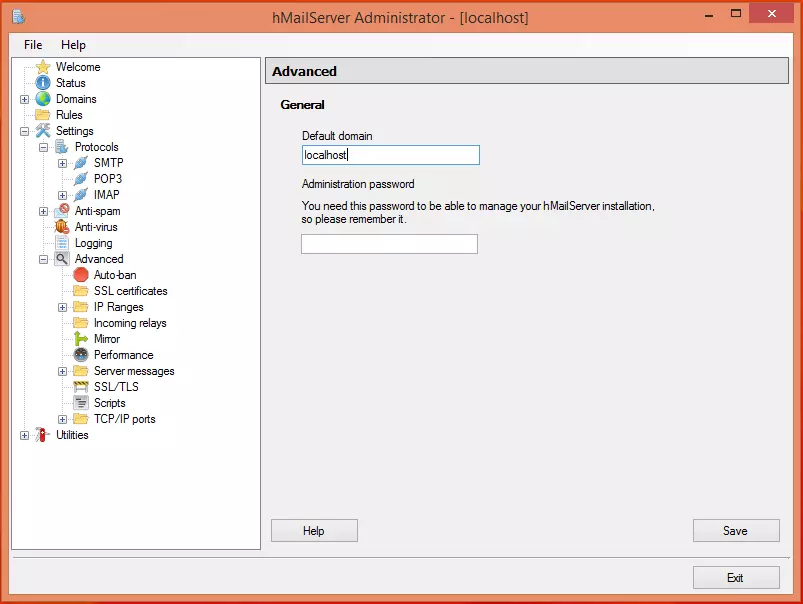
Step 7: Config Auto-ban
Expand the Advanced option and then click Auto ban. This feature blocks IP addresses after several failed login attempts.
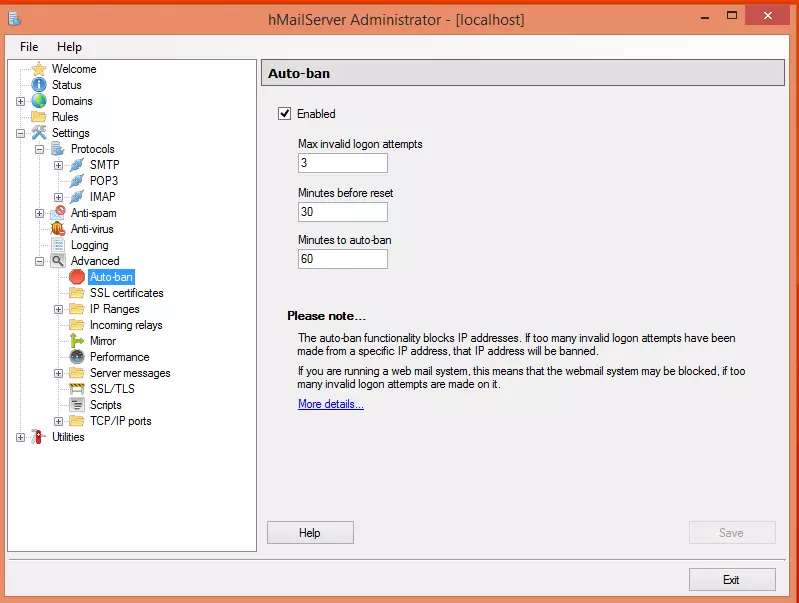
Disable the Enabled check box and click Save.
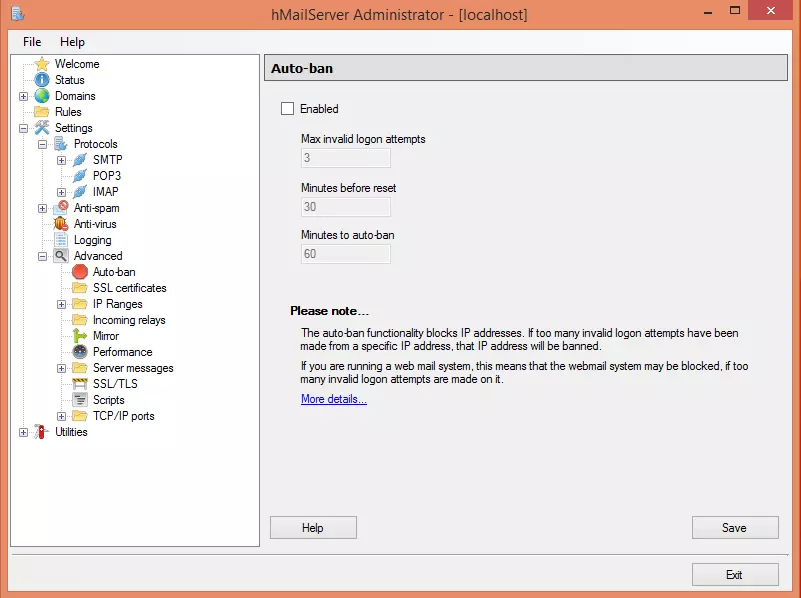
Step 8: Config IP Ranges
Expand IP ranges and click TCP/IP ports dedicated for SMTP587, IMAP 25, POP3 110, and IMAP 143.
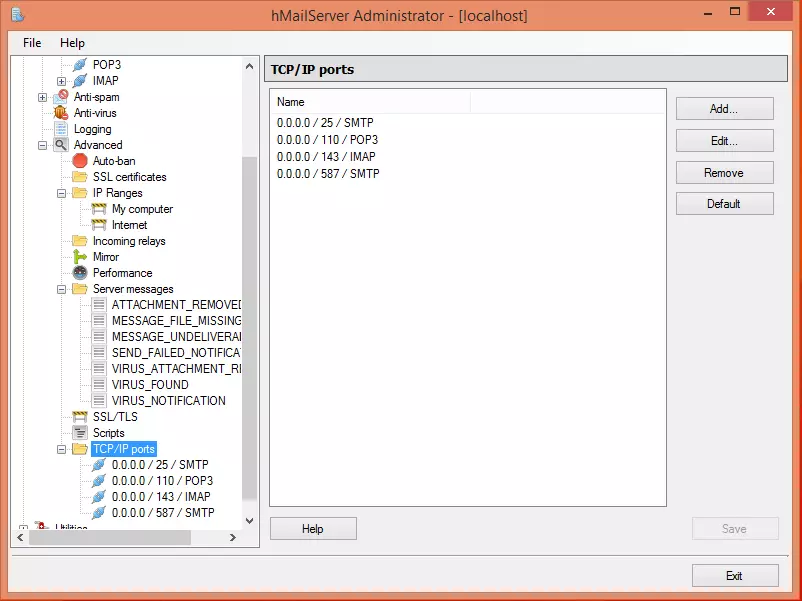
Checkout these ports to make sure the email server can receive and send mail.
Note: Enable several options, e.g., forwarding, auto-reply, DNS blocklists in hMailServer.
Step 9: Diagnostics
At the end, expand Utilities to see the options and then click on Diagnostics to give your configuration a try.
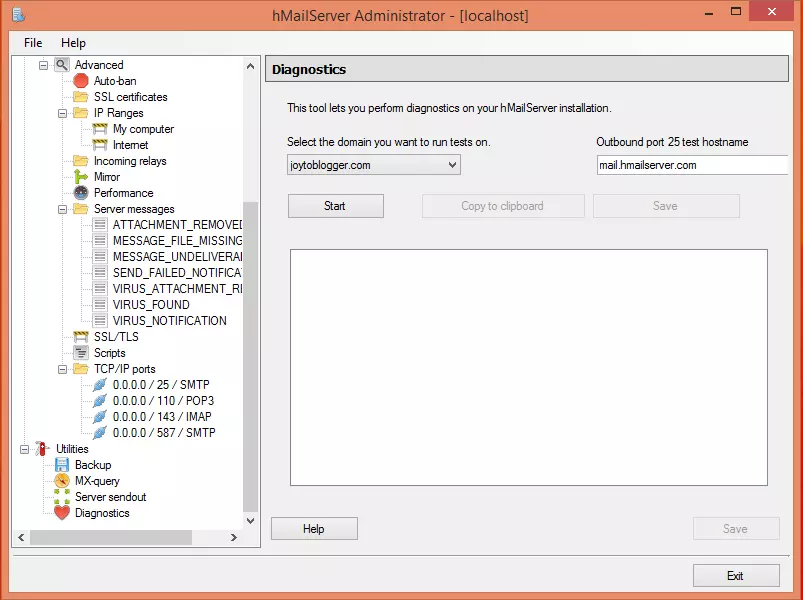
Open the Combobox “the domain you want to run tests on,” select the domain you have already entered, and click Start.
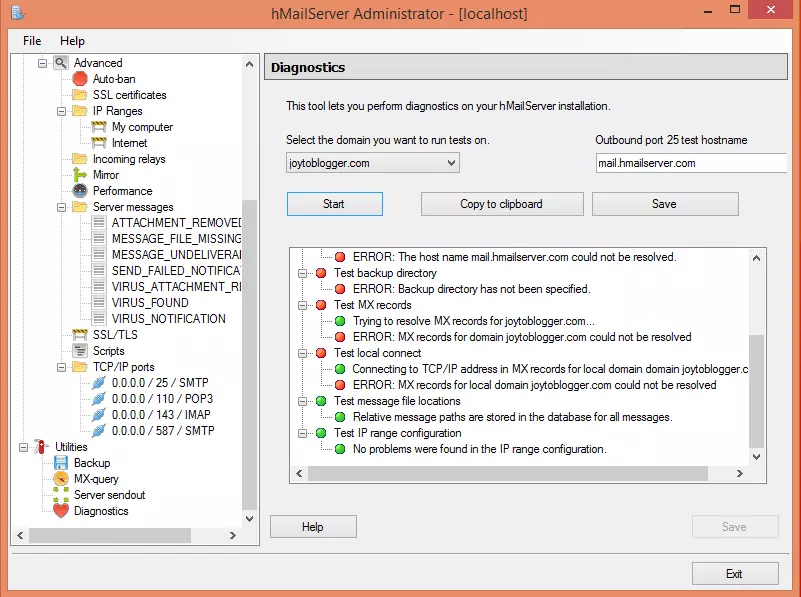
Your hMailServer is ready to use with basic settings and options.
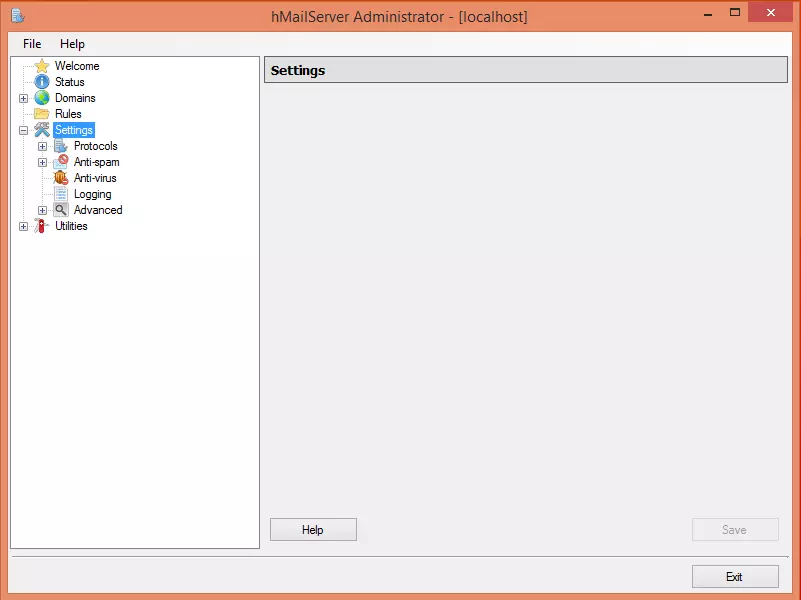
Note: Head into Collect server details to checkout the hMailServer version and database type.
You can test the outbound port; if you face an error here, it means there is an issue in your SMTP server communication. So it needs some troubleshooting.
Also read: Best Mail servers for windows
Common Issues in Creating a Private Mail Server
While setting up a private mail server has lots of benefits, it’s not without its challenges. Here are some common issues you may face along the way and how to address them:
Delivery Problems
One of the most frequent issues faced when you host your own mail server is making sure your emails reach the right recipients. If you don’t configure your mail server properly, Emails from your private server may be marked as spam by major email providers. To solve this, make sure your server is correctly set up with SPF, DKIM, and DMARC records. Regularly monitoring your server’s reputation through online tools and services can also be a great way to prevent being marked as spam.
Configuration Issues
The initial setup and configuration of a mail server can be a bit difficult. It has lots of detailed steps like configuring mail transfer agents (MTA), mail delivery agents (MDA), and ensuring secure socket layer (SSL) encryption is in place. If you find these steps challenging, you can always seek help in community forums or watch tutorials on YouTube.
Security Vulnerabilities
A private mail server can be susceptible to various security threats, including hacking attempts, phishing, and malware. You can secure your mail server by implementing strong firewalls and regularly updating your software. Using a VPS mail server with built-in security features can also offer additional layers of protection.
Despite these challenges, having your own mail server has lots of advantages like enhanced control, privacy, and customization. And these advantages outweigh the challenging difficulties. With proper planning, configuration, and maintenance, you can overcome these common issues without much trouble.
 Windows 10 VPS Hosting
Windows 10 VPS Hosting
Get yourself an efficient Windows 10 VPS for remote desktop, at the cheapest price out there. FREE Windows 10 running on NVMe SSD storage and high-speed internet.
Check Out Windows 10 VPS PlansConclusion
In wrapping up, creating your own mail server gives you with unmatched control and security over your email communications. The process of creating your own email server for free has its challenges, but the rewards in privacy, customization, and efficiency.
If you want to have an exceptional VPS experience, consider a Windows VPS from Cloudzy. Our Windows VPS plans are designed to offer great performance, scalability, and reliability for all your applications and services. So, start your Cloudzy journey to elevate your digital presence and capabilities with Cloudzy’s Windows VPS.
FAQ
How do I create a free email server?
To create a free email server, consider open-source software like hMailServer or Postfix. These tools require your own server hardware and some technical setup to manage email flows in a secure way.
How do I create an email domain for free?
Creating an email domain for free is possible with services like hMailServer. These type of services offer free plans that include email hosting.
Is Google Mail server free?
Google Mail server is a part of Google Workspace and is not free. However, Google provides a limited personal use version through Gmail, which includes email services without a custom domain. For business use and custom domains, Google Workspace offers paid plans.




3 thoughts on “How to Create Your Own Mail Server for Free?”
I use the Zimbra Mail server and it suits my needs. I wonder if any of these is easier to use than Zimbra? Does any of the mentioned mail servers offer the same feature?
Exim is also another widely used mail server for Linux. The biggest advantage of Exim is the range of configuration and customization options it offers.
Exim is so easy to customize as it has the best transfer agents designed to adapt to any business setting. And as it’s a Linux-based server, the GNU GPL license gives administrators the chance to customize the original software.
Thank you so much for taking your precious time to read our blog 🌻💛
Is this way tested? I never thought one can have an individual mail server for themself. Nice👍